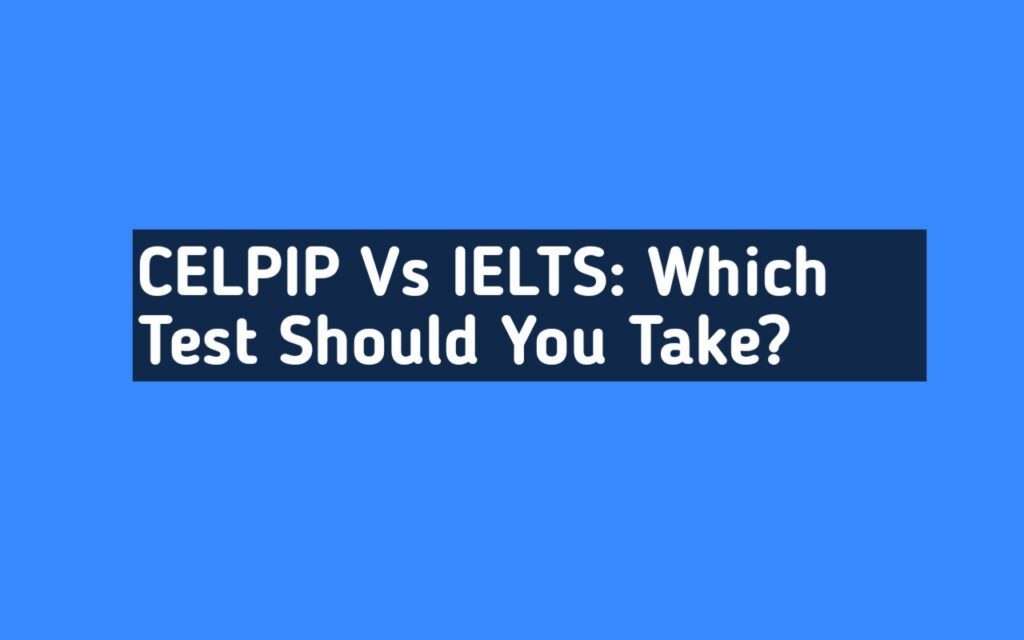If you’re planning to study or work in an English-speaking country, you’ve probably heard of two popular language proficiency tests: the CELPIP and the IELTS. These tests are essential for non-native English speakers looking to prove their language skills. But how do you decide which one is right for you? In this article, we’ll break down the key differences and similarities between the CELPIP and IELTS to help you make an informed choice.
Understanding the Basics
Before we dive into the specifics, let’s get a basic understanding of what the CELPIP and IELTS are.
What is CELPIP?
CELPIP stands for the Canadian English Language Proficiency Index Program. It’s a test designed specifically for those planning to immigrate to Canada or become Canadian citizens. The CELPIP test assesses your English language abilities in various contexts, such as speaking, listening, reading, and writing.
What is IELTS?
IELTS, on the other hand, stands for the International English Language Testing System. It’s a globally recognized language proficiency test that assesses your English skills for study, work, or immigration purposes in countries like the United Kingdom, Australia, and the United States.
Now that we know the basics, let’s delve into the factors that can help you decide between these two tests.
- Purpose of Taking the Test
The first and most crucial factor to consider is your reason for taking the test. Are you planning to immigrate, study, or work in Canada, or are you eyeing other English-speaking countries like Australia or the UK? Your purpose will largely determine which test you should take.
- If Canada is your destination: CELPIP is your go-to choice. It’s tailored for Canadian immigration and citizenship applications.
- For other countries: IELTS is a more versatile option since it’s accepted worldwide. It’s your ticket to countries like Australia, the UK, and the USA.
2. Test Format
Both the CELPIP and IELTS tests consist of four modules: Listening, Reading, Writing, and Speaking. However, the format and structure of these modules differ.
- CELPIP: This test is entirely computer-based, which means you’ll interact with a computer screen for all sections. If you’re comfortable with technology, this might be an advantage for you. The Speaking section is done through a computer program where you respond to recorded questions.
- IELTS: IELTS offers both computer-based and paper-based tests, depending on your location. The Speaking section is a face-to-face interview with an examiner, which can be more comforting for those who prefer human interaction.
3. Test Scoring
Understanding how each test is scored is essential for setting realistic goals.
- CELPIP: The CELPIP test uses a 12-point scale to score each section, with a maximum total score of 12. Your scores are then converted into levels ranging from 1 to 12. Higher levels indicate better language proficiency.
- IELTS: IELTS uses a 9-band scale to score each section, with a maximum total score of 9. You’ll receive a band score for each module (e.g., Listening 7.5, Reading 8, Writing 6, Speaking 7). These individual scores are then averaged to calculate your overall band score.
4. Test Duration
Consider your comfort with test duration and schedule when making your choice.
- CELPIP: This test generally takes around 3 hours to complete all four modules in one sitting.
- IELTS: The IELTS test can be taken on the same day, or you can choose to complete the modules on separate days, depending on availability. The total test duration is around 2 hours and 45 minutes.
5. Test Fee
Another factor to consider is the cost of the test, which can vary depending on your location.
- CELPIP: The fee for the CELPIP-General test in Canada is around $280 CAD (as of the last update). Prices may differ outside of Canada.
- IELTS: The IELTS test fee can vary from country to country. On average, it costs between $200 to $250 USD (as of the last update).
6. Test Preparation
Whichever test you choose, adequate preparation is key to success. Consider the availability of preparation materials and resources for your chosen test.
- CELPIP: CELPIP offers official study materials and practice tests on their website. You can also find third-party study materials and courses.
- IELTS: IELTS also provides official study materials, including sample questions and practice tests. Additionally, there are many IELTS preparation courses and materials available both online and offline.
Conclusion: Choosing the Right Test for You
In summary, the choice between CELPIP and IELTS ultimately depends on your destination and personal preferences. If you’re headed to Canada, CELPIP is your dedicated option. For other English-speaking countries, IELTS offers more flexibility and a globally recognized certification.
Remember to consider factors like the test format, scoring, duration, cost, and available preparation resources. Regardless of your choice, thorough preparation and practice will be your best allies on your journey to proving your English language proficiency.
Now that you have a better understanding of these two tests, you can confidently choose the one that suits your needs and start preparing for your English language proficiency journey. Good luck!
